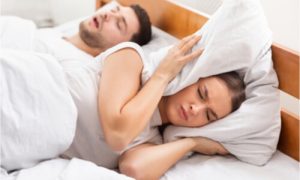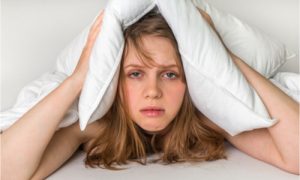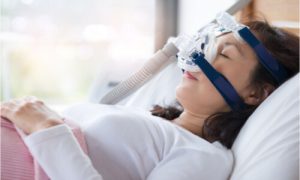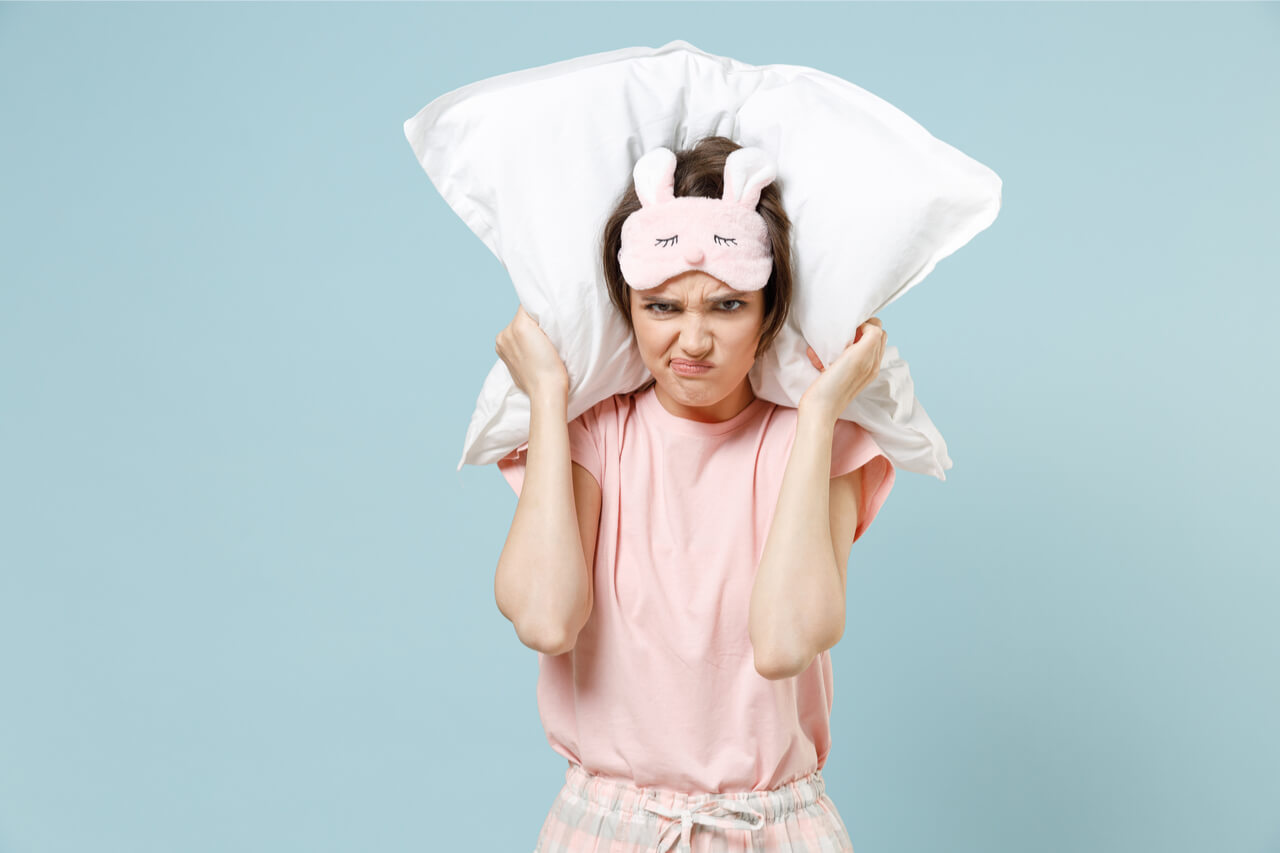Many people assume that snoring is only a problem when it happens at night. However, did you know that it is also possible to snore while awake? Snoring while awake can be just as serious as snoring at night, and it can harm your health. In this blog post, we will discuss the causes of snoring while awake and provide some tips for preventing it.
Snoring: An Overview
You’ve seen it in movies and on TV – people who portray as being sound asleep are the ones who snore. It is the epitome of deep sleep. It is not literally ‘sound asleep’ because technically, one does not have to produce a sound like snoring to have a good rest.
Vibrations cause snoring within the nasal and respiratory passages during sleep. When we sleep, our muscles become relaxed, almost like they are paralyzed. This relaxation includes the muscles of the neck and throat. Occasionally, this relaxation can narrow the respiratory passages and increase the air pressure within the lungs, nose, and throat. As a result, vibrations and the well-known sound of snoring are produced.
Snoring while awake
Now, we all know about snoring while asleep. But if you think about it, is it possible to snore while awake? Well, actually, it is! Snoring can occur while you’re still wide awake or during the process of ‘nodding off.’ This snoring can also be accompanied by changes in the rhythm and depth of your breath, leading to noticeably loud or trouble breathing patterns. Interestingly, it’s often the case that the individual won’t notice this snoring or change in breathing, but usually, those around them (their bed partner) are quick to highlight it.
The phenomena shouldn’t be taken lightly as bizarre as snoring while awake sounds. Unfortunately, snoring episodes while awake can indicate a serious and dangerous underlying condition called sleep apnea. Although snoring often seems innocuous, some studies have reported that many ‘snorers’ suffer from sleep apnea. Moreover, many patients report snoring and other breathing difficulties while awake.
Sleep Apnea Snore: Causes of Snoring while Awake
There is one apparent reason why one can experience snoring while they are wide awake: apnea. Yes, sleep apnea is a hazardous condition that manifests as periods of shallow or complete pauses to breathing during sleep. Snoring and sleep apnea go hand-in-hand, and this disorder is categorized into two primary forms:
Obstructive Sleep Apnea (OSA)
In OSA, breathing is disrupted by a physical blockage in airflow. In general, sufferers of OSA have substantially narrower air passages. This means that breathing can be difficult under normal circumstances but is a particular issue when throat muscles are relaxed.
Central Sleep Apnea (CSA)
CSA is slightly more complex, in which regular breathing rhythms, which are unconsciously controlled by the ‘limbic’ system of the brain, simply stop without a fully understood cause. While this type is called central sleep apnea is much less common than OSA and is usually associated with other medical conditions that affect brain function; for example, damage to the brainstem or limbic system through stroke or tumors.
Can sleep apnea happen while awake?
 Despite the word ‘sleep’ being present in the name of the condition, this isn’t the only time when sleep apnea symptoms can occur. The term ‘apnea’ is defined as “the cessation of breathing, during which there is no movement of the muscles of inhalation, and the volume of the lungs remains unchanged.”
Despite the word ‘sleep’ being present in the name of the condition, this isn’t the only time when sleep apnea symptoms can occur. The term ‘apnea’ is defined as “the cessation of breathing, during which there is no movement of the muscles of inhalation, and the volume of the lungs remains unchanged.”
Sleep disorders like apnea can occur whenever there are periods of extensive muscle relaxation (OSA) or neurological pauses to breathing (CSA). While symptoms are usually more severe while lying down at night, apnea can occur daily. Sleep apnea sufferers often have higher circulating levels of carbon dioxide in their blood due to poor, paused, or shallow breathing at night. These elevated levels contribute to difficulties breathing during the day, creating somewhat of a ‘vicious cycle’ if left untreated.
Obstructive sleep apnea while awake
Obstructive apnea can occur even when the patient is awake. Essentially, in a similar way as it takes place when asleep, a patient’s airways become physically disrupted. This causes changes in the patterns and depth of breathing, resulting in loud breathing and even snoring while awake.
There are a variety of risk factors for obstructive apnea while awake. In particular, neuromuscular weakness is a condition in which nerve fibers that control muscles become dysfunctional and do not normally exchange information with the muscle. Other conditions, such as ALS, muscular dystrophy, genetic disorders, and obesity, can also contribute to daytime sleep apnea and snoring.
In this circumstance, even though normal sleep processes don’t paralyze the muscles, they aren’t strong enough for the inhalation and exhalation of air at an average rate or pressure.
Central sleep apnea while awake
In normal conditions, we don’t have to think about regulating our breathing because the limbic system of our brains takes control of all of this. This is the case whether we’re awake or asleep.
In the case of central apnea, the usual cue from the brain, which triggers our diaphragm to breathe, is disrupted for a short period. This results in a momentary pause in breathing which can occur while we’re awake.
Sufferers of central apnea report snoring while wide awake as occurring numerous times per day. This event doesn’t seem to be related to daytime sleepiness or ‘nodding off’ because the condition is unrelated to how relaxed airway muscles are.
Pregnancy-related Apnea
While some disruption to sleep and general tiredness are to be expected during pregnancy, it’s becoming more apparent that sleep apnea poses a significant risk to many pregnant women. During pregnancy, levels of estrogen are elevated. This elevation causes the nose’s mucus membranes to swell and leads to congestion. Ultimately, this obstruction to the upper airway can constrict airflow and cause difficulties with breathing. Again, while this condition generally manifests at night, pregnant women can also experience snoring while awake and daytime apnea.
How to Diagnose and Treat Snoring
 Snoring from apnea of any kind, whether fast asleep or wide awake, is a serious and dangerous condition. If you think you or a loved one may be experiencing sleep apnea symptoms when they fall asleep, you must take steps toward a quick diagnosis and treatment from a medical professional.
Snoring from apnea of any kind, whether fast asleep or wide awake, is a serious and dangerous condition. If you think you or a loved one may be experiencing sleep apnea symptoms when they fall asleep, you must take steps toward a quick diagnosis and treatment from a medical professional.
Your doctor will examine your symptoms and signs to determine the cause of your illness. They will also do a physical examination of you. Your physician may ask your spouse a few questions about when and how you snore to determine the extent of the problem. You’ll be asked about the intensity of your child’s snoring if it snores.
Imaging tests
Your doctor may request an imaging test, such as an X-ray, a computerized tomography scan, or magnetic resonance imaging. These tests check the structure of your airway for problems, such as a deviated septum.
Sleep study
Depending on the severity of your snoring and other symptoms, your sleep medicine doctor may want to conduct a sleep study. Sleep studies may sometimes be done at home. However, depending upon your other medical problems and other sleep symptoms, you may need to stay overnight at a sleep center to undergo an in-depth analysis of your breathing during sleep by a study called polysomnography.
In polysomnography, you’re connected to many sensors and observed overnight. During the sleep study, the following information is recorded:
- Brain waves
- Blood pressure and oxygen level (high blood pressure, low SPO2)
- Heart rate
- Breathing rate
- Sleep stages
- Leg and eye movements
Treatments and Home Remedies
To stop snoring, you need to treat sleep apnea. Your doctor may recommend the following to help you address sleep apnea.
There are a few different treatments available for sleep apnea. Depending on the severity of your snoring and other symptoms, your doctor may recommend the following:
 CPAP machine
CPAP machine
A CPAP machine is a device that delivers continuous positive airway pressure (CPAP) during sleep. This helps keep your airways open and prevents snoring and apnea.
Surgery
Surgery may be an option if your snoring is caused by a structural problem, such as a deviated septum. Surgery can also help if you have enlarged tonsils or adenoids.
Oral appliance
An oral appliance is a device that fits into your mouth and helps keep your airways open. Oral appliances are form-fitting dental mouthpieces that help advance the position of your jaw, tongue, and soft palate to keep your air passage open.
Positive airway pressure (PAP) therapy
PAP therapy involves wearing a mask that covers your nose during sleep. The mask is connected to a machine that delivers positive airway pressure (PAP). This helps keep your airways open and prevents snoring and apnea.
If you snore while awake, you can do a few things to help yourself.
- Avoid drinking alcohol and sedatives before bed.
- Don’t eat a large meal right before bed.
- Sleep on your side instead of your back.
- Use a humidifier in your bedroom.
- Practice some relaxation techniques before bed.
- Get regular exercise and lose weight.
- Don’t smoke.
- Catch enough sleep at least 6 hours daily.
- Avoid caffeine before bed.
- Use nasal strips or an external nasal dilator.
If you recognize any warning signs on you or your family member, talk to a doctor. They will probably recommend diagnostics to rule out what your snoring issues stem from. Sleep studies are done overnight in a specialized lab or, sometimes, in your own home. The sleep study is a way to monitor how much sleep you normally have and characterize the breathing patterns while you’re asleep. Your snoring may be harmless, but its cause may be life-threatening, so be vigilant. You can visit SleepClinicMelbourne.com.au to learn more.
References:
https://www.mayoclinic.org/diseases-conditions/snoring/doctors-departments/ddc-20377703
https://www.webmd.com/sleep-disorders/sleep-apnea/snoring
https://www.hopkinsmedicine.org/health/wellness-and-prevention/4-signs-you-might-have-sleep-apnea
https://healthtalk.unchealthcare.org/snoring-vs-sleep-apnea-is-there-a-difference/
